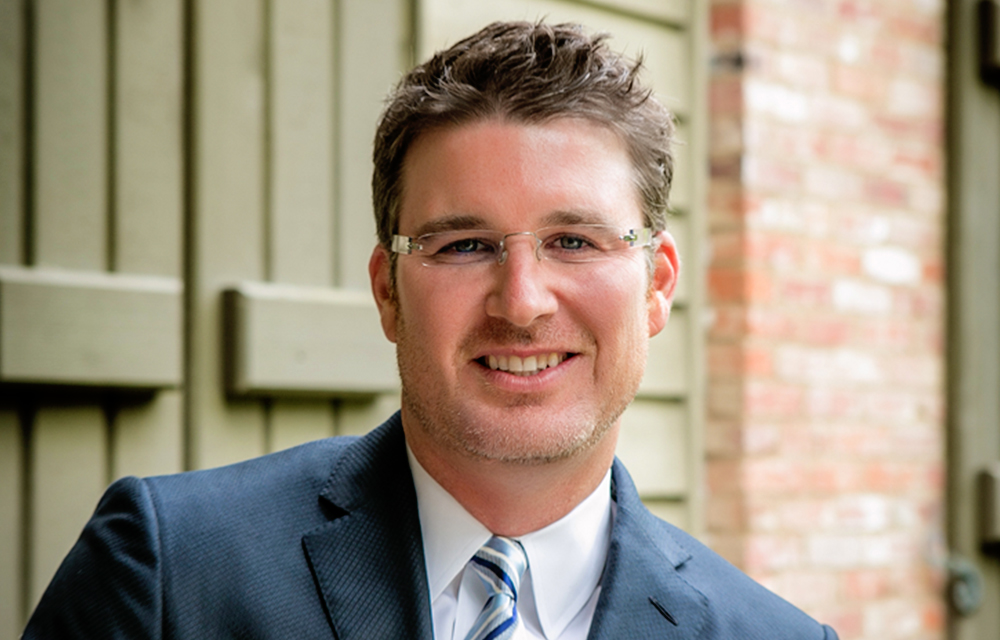When brands create emotional connections, they earn lifelong customers. The medical aesthetics industry is all about human connection, building relationships, and a personal touch. Dr. Adair Blackledge not only focuses on a holistic consultative sales methodology as covered in our previous post, A Successful Medical Aesthetics Consultative Sales Approach: Q&A with Dr. Blackledge, he also considers the patient experience a key part of his success. Putting patients’ goals, budgets, and needs above all else may seem like a recipe for high overhead and low margins. But, Dr. Blackledge has proven that doing just that is crucial, especially when trying to appeal to the millennial market.

When hiring for your practice’s team, what do you look for in candidates?
I don’t look for previous beauty or aesthetic experience. In fact, I’ve hired staff members who were kindergarten teachers and restaurant servers. That’s because the number-one thing I want in an individual is a focus on education and providing a fantastic experience. I can teach cosmetics and beauty, but I can’t teach a service-driven heart. Dedication to providing a white-glove experience is something you’re born with.
Since dedication to white-glove service is key, how does the typical client experience unfold in your practice?
The first thing they do is meet our skincare concierge in the skincare room. In addition to an advanced VISIA-skin-analysis computer imaging machine, this room has a display wall with every product that we carry. After we use the facial imaging software to show possible problem areas, the patient meets with the aesthetician to discuss their goals and the economics of skincare. Then, they have their treatments done before they go back to the skincare concierge who tailors their treatment plan based on the results they’re looking to achieve.
What common practice pitfalls do you think damage the patient experience?
When practices don’t discuss long-term budget with a patient. If you move forward with a treatment before you’ve talked about how much they can afford to spend on future procedures and skincare, it drives patients off. I don’t understand why medical aesthetics practices are afraid to discuss budget – it’s the only industry I’ve found where this happens. You go in to buy a car and the first thing they ask you is, “what are you looking to spend?” They don’t just start showing you around the lot without a price point in mind.
How does not being upfront about budget impact repeat business?
If you don’t talk to patients about their budget, then they leave feeling uncomfortable and thinking that they’re going to spend too much if they come back. Instead, you should ask at the beginning “How much can you budget for skincare?” or “How much are you comfortable spending?” Then, you can create a treatment plan that fits within that budget. I would rather my team work with patients to figure out how to get the best results within their budget than for patients to leave thinking they can’t afford skincare. Everybody can afford skincare, it’s just that some people can afford more skincare.
What other elements do you incorporate into the patient experience aside from white-glove service and goal-oriented skincare?
At the end of the appointment, after they’ve had their procedure, they meet with the skincare concierge again to develop an ongoing treatment plan together. Here, they get to sample as many products as they’d like (patients love to touch, feel, and smell). Then, they purchase the products they’ll need and schedule a return visit.
Aside from products and samples, do patients leave with other materials?
We don’t like to use brochures from external sources because a lot of them are wordy and scientific – not to mention, off-brand. When you hand those out, half of them end up in the parking lot. Rather, everything we hand off to patients is something we’ve created in the office. Our patients leave every appointment with a card that tells them what they’re supposed to do, a list of the products that they purchased, and what those products are designed for.
What other strategies do you have in place to support the customer experience and ensure repeat business?
The biggest thing for us is follow-up phone calls. Three days after every patient leaves, they receive a personal phone call asking about their experience, how they’re doing with their new product regime, and if they have their next appointment scheduled. We’ve found that 90% of patients have a question that they run into at home, or that they’re too nervous to ask in the office, so this makes them feel more comfortable. A simple phone call really makes all the difference in the world when it comes to building these relationships.
In terms of driving new business, what new demographics are developing more interest in skincare?
Men are really starting to get comfortable with skincare. When I saw Dove’s campaigns geared towards men using athletes like Brett Favre, that told me that this was an audience we should start marketing to. The second new market is millennials. Millennials are particularly interested in the products and services we offer.
How do you tailor your experience to the millennial market?
You have to treat millennials totally differently. They Google everything, so by the time they make it to you, they feel like they already know the answers. When you deal with millennials, you have to be educated because they’re going to question and research everything that you say.
The second thing is that millennials are very experience-driven because that’s the one thing that they can’t Google. Older generations love results, but millennials are looking for you to provide them with an amazing experience. You can’t research walking into an office and having it smell amazing, or the feeling of having someone put a hot towel on your face.
How do you reach millennial clients through marketing? What’s important to consider when speaking to them?
Being very active on social media is key. You also have to make sure that what you’re writing is very short and to the point and that you come across as an expert. They respect details and being informed, as it builds trust.
In addition to social media, do you do any print or traditional advertising?
No. We did up until about five years ago, but we found that it really wasn’t effective anymore. We now gear things more towards digital. We’re in the process of building a new website and blog and are planning on posting new blog content about once a week.
What advice would you give practices on their social media marketing strategy?
I think that practices can be on social media too much and post too often. Physicians also have a bad habit of being too scientific on this platform, as well. People don’t care if you can spout off big words or that you know every ingredient in a product. If you do these things, it’ll be boring and people will stop paying attention to you.
This blog post is Part 4 of our 4-part series, The Influence of On-site Tactics on Medical Aesthetic Practice Sales. Be sure to check out the other posts, including the first half of our interview with Dr. Blackledge on the formula for a successful consultative sales approach:


